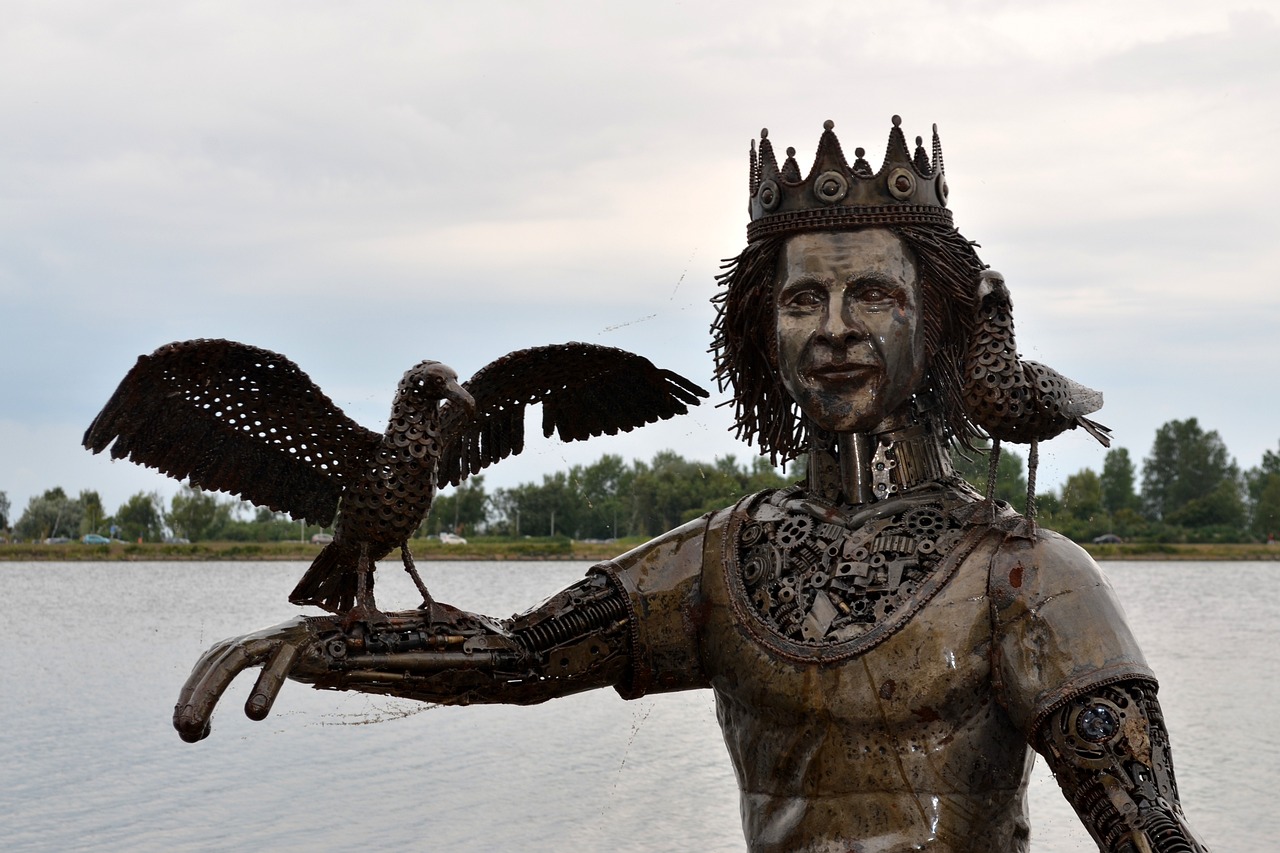Njord, a prominent figure in Norse mythology, embodies the god of sea, wind, and wealth. As one of the Vanir, Njord is closely associated with maritime activities, being revered by sailors and fishermen seeking safe travels and prosperous catches. His influence extends beyond the ocean; he is also linked to the fertility of the land, amplifying his stature as a divinity of abundance.
Unlike the more central gods of Asgard like Odin, Thor, or Loki, Njord holds a vital yet somewhat less elevated position within the pantheon. Despite this, his importance primarily springs from his dominion over the forces of nature that lie at the core of Norse livelihoods.
A Glimpse into Njord’s Identity
Njord (or Njorth) governs ships, seafaring, and the winds, reinforcing the significance of maritime trade and fishing in Norse society. However, his authority is not limited solely to the waters; he also represents fertility and agricultural wealth, reflecting a dual connection to both the sea and land.
For seafarers, invoking Njord appeared as an essential practice to secure safe navigation and successful endeavors. His veneration endured beyond the Viking Age, showing a lasting cultural influence even as Christianity began to rise in prominence across Northern Europe.
Described in the Prose Edda and Poetic Edda from Iceland, Njord’s residence is identified as Noatun, interpreted as “ship-enclosure.” This realm connects him to the heavens and symbolizes control over the coastal waters and their bounty.
Other Sea Deities in Norse Mythology
While Njord plays a significant role, he wasn’t the sole deity associated with the sea. Deities like Aegir and Ran also commanded respect over various aspects of the ocean. Aegir, although classified as a jötunn, functioned essentially as the god of the sea, encompassing the deeper waters. Ran, a goddess of storms and drowned sailors, contrasted Njord’s protective nature by exemplifying the perilous qualities of the sea.
Despite their proximity within the mythology, Aegir and Ran were not rivals to Njord. Their roles delineated the distinctions in their powers without competition influencing the tales surrounding them.
Njord’s Place Among the Vanir
Njord, as part of the Vanir, represents a group of deities characterized by their affinity for magic and fertility. Residing in Vanaheim, he contributed to their collective identity, leading them during conflicts with the Aesir. Following the Aesir-Vanir war, Njord and his offspring became hostages among the Aesir, yet they retained high honors, linking their fates across both lines of divine beings.
Njord’s prominence was affirmed during his time in Asgard, where he was entrusted with directing sacrifices and rituals held at temples, highlighting his importance to both mortals and deities alike.
The Complexities of Njord’s Relationships
Njord’s marriage to Skadi, a jötunn and goddess of skiing and mountains, is one notable narrative. Following revenge against the Aesir for her father’s death, Skadi sought to marry a god based solely on their feet. Choosing Njord, the couple struggled to reconcile their vastly different domains—the cold mountains of Thrymheim and the bustling sea—ultimately leading to their separation without progeny.
Nerthus, another significant figure connected to Njord, spoke to the complementary attributes of wealth and fertility. Historically worshiped across Germanic tribes, Nerthus’s characteristics echo Njord’s essence, positing her as a vital part of the fertility and prosperity themes prevalent in Norse culture.
The Mystique of Njord’s Family
Some theories suggest that Nerthus may have been Njord’s sister, with their names and attributes showing strong parallels. However, there’s speculation that Njord’s sister was another goddess known as Njorun, though details about her are scant. Conversely, it may be surmised that Nerthus represents a precursor to Njord, evolving through time from an earth goddess to one aligned with the sea.
Njord and Funerary Traditions
Njord’s role may have also extended into the realm of funerary customs. Reflecting the well-known culture of Viking funerals that often involved ships, it is plausible that Njord was invoked as a guide for departed souls, ensuring a safe passage into the afterlife. While accounts of actual Viking funerals reveal complexity, boats were prominent symbols within burial rites, and Njord may have found a connection here.
Njord’s Survival Through Myth
Contrary to the notion that all gods perish during Ragnarok, fragments of mythology hint that Njord survives this cataclysm, returning to Vanaheim. Though the fate of Vanaheim post-Ragnarok remains uncertain, it indicates a hopeful continuity among the Vanir.
Conclusion
In summary, Njord’s significance within Norse mythology is undeniably profound. As a god governing the seas that nourished society and facilitated commerce, he was revered as a protector and source of prosperity. Although the details of his worship remain sparse, Njord’s integral function within the economic heart of Norse life defines his legacy, ensuring his revered status persists through mythological accounts and cultural history.



